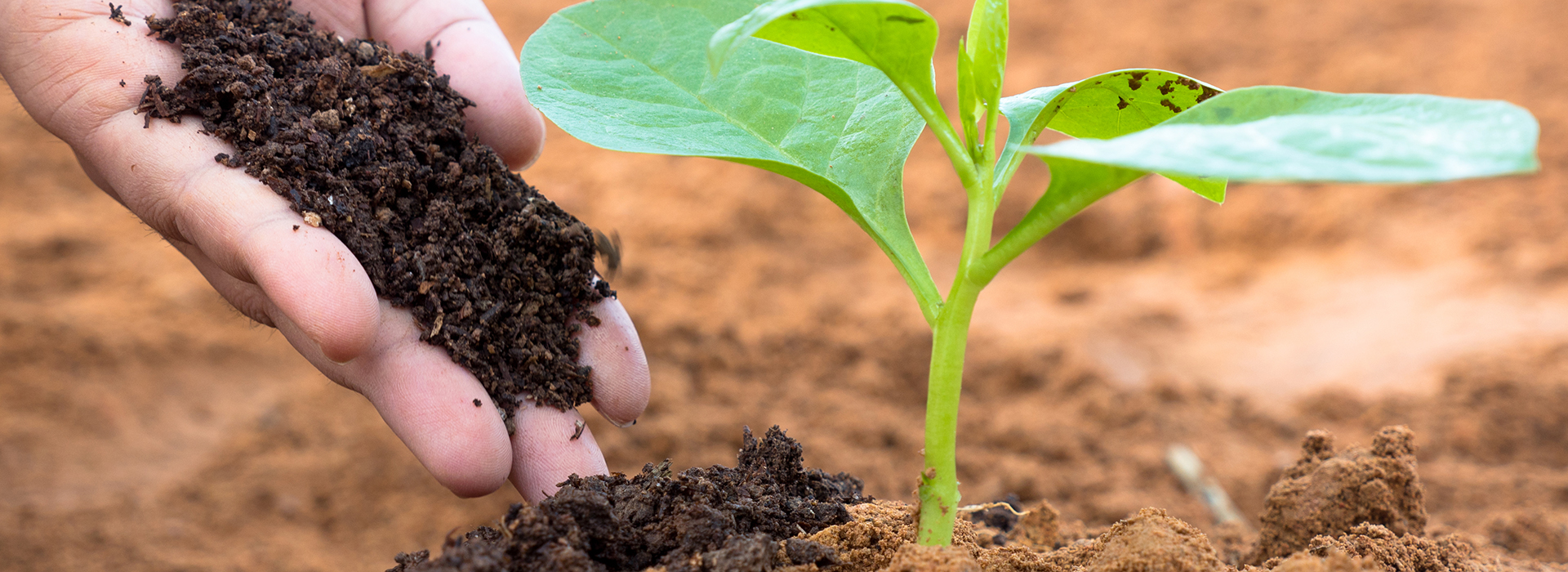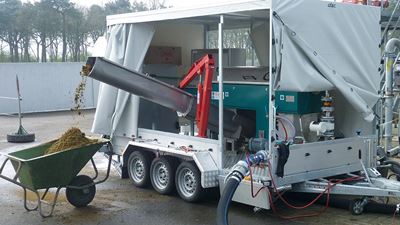Agricultural biomass
Recycling rather than disposal: efficient technologies for the treatment of agricultural biomass

Both residues from the fermentation of biomass and slurry from livestock farming are considered to be valuable fertilizers in modern agriculture. For spreading on agricultural land in a way that is not detrimental to the soil and in accordance with the strict legal requirements, the organic substances and associated excess nutrients must be processed appropriately. GEA provides the market with customer-friendly and demand-based processing concepts, which contribute to the sustainable reduction of environmental pollution.
Using decanters to produce high-quality fertilizers from fermentation residues
For the efficient processing of fermentation residues, our high-performance GEA decanters reliably separate solid particles, dewater them into a pourable dry consistency, and guarantee a high content of up to 30% dry substance in the solids. Compared with other technologies, there is no risk of blockage with centrifugal technology and the separation of solids is more efficient. Our customers benefit from lower transport and spreading costs, as the high separation efficiency of our decanters ensures a high proportion of organic content in the solids that are spread. Moreover, for lower fresh water consumption, the clear centrate water can be fed back into the fermentation process.
Reducing phosphate and nitrogen content with decanters
GEA decanters are also designed for processing raw slurry and offer users a range of advantages. They can be used to reduce phosphate and nitrogen content efficiently, for example from liquid pig slurry, by separating up to 75% of the phosphate compounds and up to 35% of the nitrogen compounds with the solids. The pourable solids can be composted and used as high-grade fertilizers. The liquid phase is transported to a silo for storage or spread on agricultural land.

Energy-efficient evaporation technology for economical concentration of raw slurry
Concentrating slurry in an evaporation plant has also been proven as effective to counter the surplus of slurry, particularly in cattle-strong rearing farms. In this process, the slurry is concentrated up to 30% dry substance in an evaporation plant then completely dried in a dryer. Both the evaporation plant and the dryer can be operated here entirely with the aid of waste heat, which is often available.
Advantages:
- Sustainable solutions for processing raw slurry and fermentation residues
- Decanter or evaporation plant – appropriate process technology for every customer
- Production of high-grade fertilizers for environmentally friendly spreading that is compliant with the strictest legal requirements
- Reduction of transport and spreading costs
- High content of dry substance in the solids that are spread
- Lower energy costs for the evaporation plant and dryer due to the use of waste heat
GEA further supplies equipment like jet and vacuum pumps for conveying liquids such as biological sludge or manure and solids such as sand and gravel.
Products & Technologies
Showing 4 of 7

Decanter Centrifuge
The decanter’s hour has come as soon as the solids content in the suspension to be processed is particularly high. These machines provide the benefits of high clarifying efficiency and maximum dewatering as well as the separation of liquids with the simultaneous removal of solids. The main requirements in this respect include a high bowl speed, a...

Distillation Equipment
Distillation technology is used throughout the chemical, pharmaceutical, food and beverage and environmental technology industries.

Ejector Systems
Ejectors, are devices for the conveyance, compression or mixing of gases, vapors, liquids or solids in which a gaseous or liquid medium serves as the motive force. They are "pumps without moving parts".

Gas compressors
GEA gas compressors are key system components in oil & gas extraction and processing operations, in power generation plants with gas turbines, in chemical processing and in numerous other industries.
Downloads
GEA Insights India
All pharmaceutical freeze-drying vials are the same! Aren't they?
Whether it’s a fad or the future, 100% vial traceability is becoming an increasingly important consideration in the pharmaceutical freeze drying industry. Keeping a close eye on developments is GEA. We’re investigating possible solutions and, what’s more, we have the experience, expertise and know-how to implement them.
Alcohol-free beer: They want it all – they want less
There was a time when the phrases ‘non-alcoholic beer’ and ‘tastes good’ were seldom used together in the same sentence, particularly by consumers. But low-proof and alcohol-free beers have come a long way – many of them now refreshing drinks in their own right – thanks in no small part to technology from GEA.
Innovating patient care with aseptic spray drying
At GEA, our commitment to engineering for a better world fuels our pursuit of innovative solutions that enhance patient care and safety. One of our most promising ventures in recent years is aseptic spray drying – a technology that promises to revolutionize pharmaceutical manufacturing.